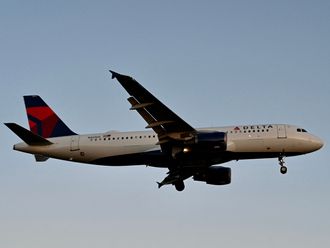Dubai: Iraq’s crude exports fell 7 per cent in October after the Kurdish region held an independence referendum that sparked fighting with federal troops, interrupting pipeline sales.
Shipments from Opec’s second-largest producer dropped to 3.72 million barrels a day in October, from 3.98 million in September, according to Bloomberg tanker tracking. Exports from the disputed Kirkuk region halted amid the dispute, cutting sales from northern Iraq in the second half of the month to less than half their normal pace of 600,000 barrels a day, according to port agent reports and tanker tracking. Sales haven’t been as low since April when pipeline disruptions in the north and jetty repairs in the south slowed sales.
Iraq’s faltering exports helped bolster crude prices last month, helping push Brent to a third monthly gain this year and its first close at more than $60 (Dh220.38) a barrel. Global producers have been trimming output to deal with oversupply that’s cut prices from more than $100 a barrel in 2014. The Organisation of Petroleum Exporting Countries meets later this month to discuss extending output cuts that started in January beyond March 2018.
The country has been Opec’s star performer since the start of the decade, nearly doubling crude production as it brought in international partners to develop its giant fields in the south. At the same time, however, Iraq has yet to comply fully in any month this year with its pledged output cuts, under the OPEC accord.
While smaller explorers bought up exploration acreage in northern Iraq, production increases there have been plagued by disputes over crude revenue between the semi-autonomous Kurds and the federal government. That hasn’t stopped Iraq from boosting output to a high of 4.63 million barrels a day in December, before Opec’s cuts started. The country pumped 4.47 million barrels daily in September, according to the most recent data compiled by Bloomberg.
Iraq sold 3.29 million barrels a day of crude from Basrah port in the south last month, down 2 per cent from September, according to tanker tracking. Sales from the Kurdish region, which had included flows from fields in Kirkuk province, plunged 30 percent in the month to 428,387 barrels a day.
Kurdish forces lost control of Kirkuk and its oil fields to federal troops last month. The Kurdistan Regional Government included Kirkuk in its independence referendum, sparking criticism from the federal government. Kurdish forces had occupied areas of Kirkuk vacated by the Iraqi military in the face of an onslaught by Islamic State militants in 2014.
China was Iraq’s biggest market last month, with vessels carrying 845,101 barrels a day of crude leaving the Arabian Gulf country for the Asian buyer in October, according to tanker tracking. Most crude from the Kurds went to Greece, with the European country taking 150,000 barrels a day of crude from the region, the data showed.












